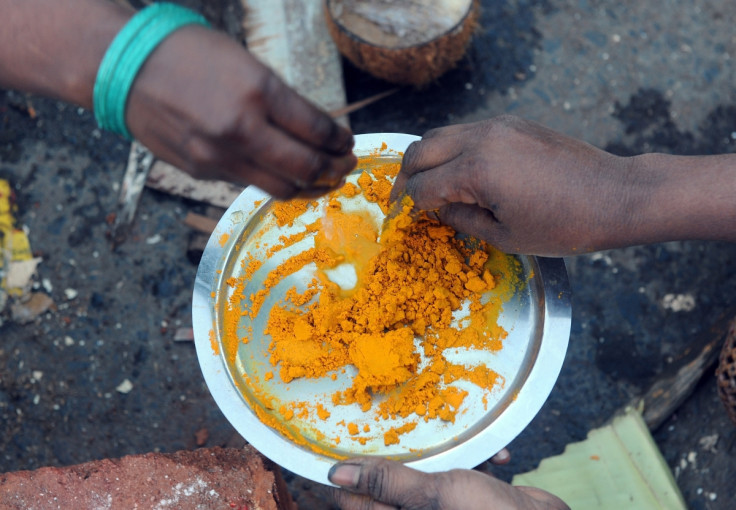Sirtfoods: What is the new diet that tells you to drink red wine and does it really work?

The sirtfood diet has been the huge hit of early 2016. The book has headed up bestseller lists – it's spent everyday in the most popular books on Amazon since the paperback was available. According to its publisher's press releases, supermarkets have seen shelves cleansed of top sirtfoods. It has all the ingredients for a super-fad: celebrity endorsements, voracious social media engagement, an easy-to-read book. So what is the sirtfood diet? And does it hold up?
According to the authors of The Sirtfood Diet, Aidan Goggins and Glen Matten, certain foods contain proteins that activate 'sirtuins', genes in your body that help you lose weight. Goggins and Matten link these sirtuin-activating foods to the local diets of places where people generally live longer and healthier lives – Mediterranean diets are always the best example. They even suggest that the positive effects of sirtfoods can be shown by what is known as the first scientific trial ever to take place – in the Bible, Daniel challenges a group of royal guard to eat vegetables for 10 days and see how they felt, they felt better so they changed their diets – a simple test. Even thousands of years ago, people knew to eat their veggies.
Sirtfoods
- Buckwheat
- Matcha green tea
- Extra virgin olive oil
- Chilli
- Kale
- Cocoa
- Coffee
- Red wine
- Tumeric
- Strawberries
- Walnuts
"Is it possible to achieve this range of benefits [weight-loss] without actually needing to undergo intense calorie restriction and its numerous drawbacks?" posits the book early on: according to the author, sirt foods are the answer we've been waiting for, and to prove it? Apart from the Bible, a study done by the authors with 40 people at an exclusive, luxury gym in Chelsea. For the study, 40 people undertook a sirtfood diet plan over seven days – for the first three days, the participants ate one sirtfood-rich meal a day alongside three green juices, totalling 1,000 calories a day; for the last four days, they were allowed an extra 500 calories by replacing a juice with a meal, bringing them up to 1,500 calories.
The results of this study were 'remarkable', says the book, all but one participant carried out the trial until the end and the remaining 39 lost an average of 7lbs (3.2kg). This 7lb number is important, it is a big part of the book's marketing – 'Lose 7lbs in 7 days' is on the book's cover.
The inside cover of the book is full of another important part of the book's marketing - gushing reviews from celebrity endorsers. TV Chef, Lorraine Pascale, calls it "a non-faddy diet that offers incredible health benefits and weight loss." Championship heavyweight boxer, David Haye, says sirtfoods were "a revelation to my diet."
But some people have been vocal about criticism, including the writer Jack Monroe who tweeted that the diet is "wank":
So, the Sirtfood diet.
Apparently severe calorie restriction and leafy greens will make you thinner.
Bored of all this wank now.
— jack monroe (@MxJackMonroe) January 23, 2016In a blog for the Huffington Post, Laura Thomas PhD called it "the latest in a long list of BS faddy diets" and posed a few rebuttals. She called the "7lb in 7 days" suggestion "unsustainable, dramatic, and unhealthy" as well as saying it was "psychologically damaging to set someone up with this kind of unrealistic expectation of the diet".
Mariëtte Abrahams, registered dietitian and spokesperson for the British Dietetic Association, told IBTimes UK that while there was nothing wrong with the foods listed on as being sirtfoods "the science on which the diet is based is still emerging."
"A lot of the research that's come out has been done on mice so we don't really have a lot of human studies – big long-term studies that look at what really happens when you eat these foods consistently over 50 years or 100 years to say that's the reason." As for the claims that people in generally consider healthier regions are eating sirtfoods: "it's not really exactly clear."

"People in India and the Mediteranean have a high intake of those foods anyway, is [their longevity] because of the sirtuins or the effect of these foods on how your genes are working?... We need a lot more studies on humans that are longer term."
The next criticism is towards the study that the authors cite. "The group they studied was quite small," says Abrahams, they were also members of an exclusive, luxury gym in Chelsea - "that's not the average person... the fact that they chose a population who go to the gym is already something... that already is some kind of bias, they need to choose a more representative sample of the general population and then see if they have the same kind of response and while not giving them exercise."
Along with the number of people in the study and where these people came from, the study also doesn't prove that any weight loss came from the fact that the foods consumers were sirtfoods: "At 1,000 calories most people will lose weight anyway... and then living on juices, in general, we say the first 7-10 days you would lose weight anyway if you reduce your calories."

The important thing to note is that apart from the sudden calorie drop on the first few days, there isn't anything necessarily unhealthy about the sirtfood diet – the foods they mention are mostly vegetables. They do mention red wine but take the time in the book to say that it should still be drunk in moderation.
"There's technically nothing wrong with the foods," says Abrahams, "but for the average person it's not something that we would really recommend,especially if the message is to focus on sirtuins."
Eating lots of buckwheat, kale and capers is a good thing but, as ever, they need to be part of a balanced diet – there isn't yet the science to back up the book's suggestions: "in terms of the science, yes it's really exciting but it's really early to make claims based on that."
For the best diet: "Eat a variety of foods, be mindful of your total intake and move." Whatever the latest diet, it's a message that doesn't change.
© Copyright IBTimes 2025. All rights reserved.




















